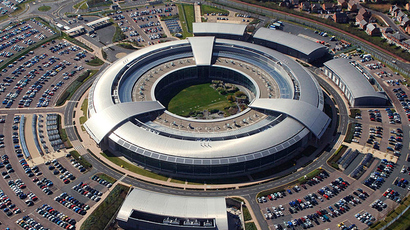NSA bulk spying may see termination of EU-US agreements – MEP resolution

The EU threatens the abolition of its trade agreement with the US, and other deals, if blanket surveillance by the NSA on EU citizens doesn’t stop. MEPs announced a resolution that wraps up a six-month inquiry into America’s violation of data privacy.
Edward Snowden became one of the pillars of this resolution, following an invitation from the European Parliament to provide testimony for the inquiry. What the MEPs found was that the NSA used the EU’s segmentation against it, employing loopholes in their respective laws to gain access to information, often with their unwitting help.
The non-binding resolution voted for on Wednesday calls for the suspension of existing agreements with the US, including bank data sharing and the agreement on EU citizen data being passed to the US by non-EU companies, as well as proposing to keep questions of data protection separate from the EU-US free trade talks. The European Parliament also said it wants a separate digital bill of rights for its citizens.
A serious threat is the abolition of the Transatlantic Trade and Investment Partnership, the aim of which is the removal of trade barriers in a wide range of economic sectors to facilitate the flow of goods and services between the EU and the US. The resolution calls for the EP to hold off its final agreement with the TTIP unless it starts taking into account the fundamental rights of EU citizens. The resolution argues that consenting to the deal is meaningless if blanket mass surveillance including that on political and diplomatic bodies, isn’t stopped.
Fighting terrorism does not justify such means, the legislative body believes.
The resolution also calls for an “immediate suspension” of the voluntary data protection standards for non-EU companies that pass EU citizen data to the US – otherwise known as the Safe Harbor agreement. The EP argued that current regulations don’t provide enough safety on the European side, and therefore urged the US to propose new personal data transfer rules that are able to meet EU requirements.
Another agreement that could get the ax is the Terrorist Finance Tracking Program (TFTP), until authorities can ascertain whether the US has access to EU citizens’ bank accounts outside of the deal and the allegations are clarified.

In the post-Snowden world, the EP also believes legislation needs to be enacted to govern the fate of European whistleblowers. One notable outcome of this would be the prospect of EU offering international protection from prosecution.
The resolution, which received overwhelming support with 544 votes to 78 (with 60 abstentions), set out the findings and recommendations following an extensive probe into the Snowden allegations, which “gave [the EP] a chance to react. I hope we will turn those reactions into something positive and lasting into the next mandate of this Parliament, a data protection bill of rights that we can all be proud of,” Calude Moraes, Civil Liberties inquiry rapporteur said at the meeting.
"This is the only international inquiry into mass surveillance… Even Congress in the United States has not had an inquiry", the British MEP noted.
The report he presented included questions that European MEPs had posed to Edward Snowden himself, and his answers. They constituted the bulk of the evidence used by Moraes to make his arguments. The core of those arguments was the fact that there is a US strategy to pit EU members’ intelligence agencies against each other. As it turns out, the NSA’s Foreign Affairs Division (FAD) cooperated with the governments to search for weak spots and loopholes in their constitutions to “justify indiscriminate, dragnet surveillance operations that were at best unwittingly authorized by lawmakers,” according to Snowden’s words to the MEPs.
The scary part of this, according to Snowden, is a sort of “European bazaar,” in which one government can promise NSA the use of its tapping centers on the premise that it won’t use it to spy on that government’s citizens; needless to say, enforcing this is impossible. The series of recommendations offered by Moraes is a result of these revelations.
All of this comes with suggestions for revamping Europe’s cyber security and encryption technology. And with it come the requirements for the UK, France, the Netherlands, Sweden and Poland to expose the kind of agreements their communications companies have made with intelligence services – specifically on permissions to hack into transatlantic cables to mine private data. The resolution states that such practices need to be conceptualized with a view to EU laws.
A slightly wider list of countries than above – further including Germany, Belgium, Italy and Spain – will need to give guarantees that their intelligence services shall from here on out be subject to parliamentary scrutiny and regular judicial inspections.














